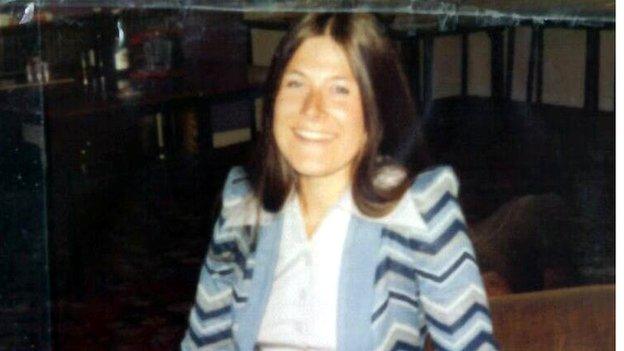Brenda Page: Ex-husband guilty of murdering 'brilliant' scientist in 1978
- Published
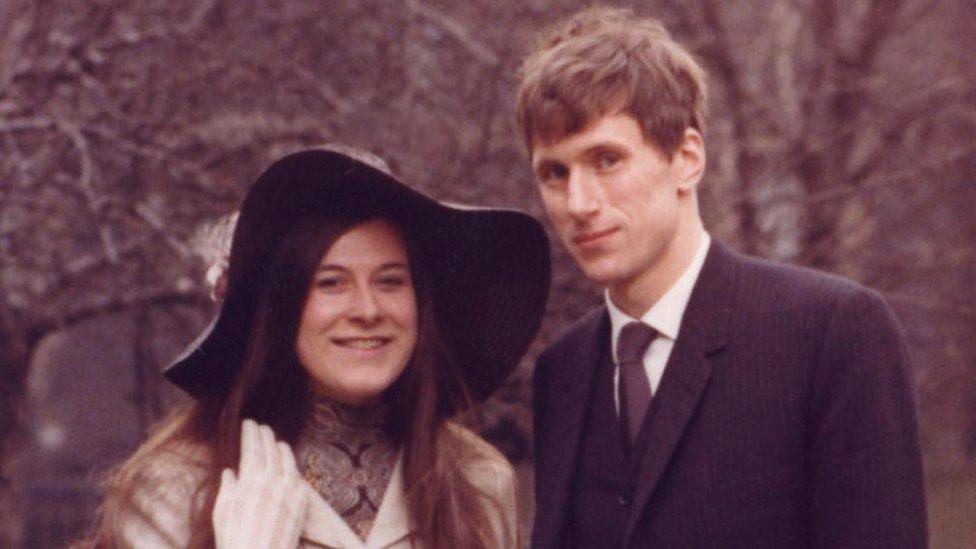
Brenda Page and Christopher Harrisson met in 1971
An 82-year-old man has been found guilty of the brutal murder of his ex-wife almost 45 years ago.
Retired research scientist Christopher Harrisson denied killing 32-year-old Brenda Page in Aberdeen a year after the couple were divorced.
The body of the genetics expert was found on her blood-stained bed in her home on 14 July 1978.
A jury convicted Harrisson of the murder of his ex-wife, who he had told police was a "brilliant scientist".
He showed no emotion when the verdict was read out at the High Court in Aberdeen.
Judge Lord Richardson sentenced Harrisson to life with a minimum period of 20 years before he would be eligible for parole.
The judge said Harrisson, who has no previous convictions, had carried out a "premeditated" attack after stalking Ms Page.
He said it was a "sustained and vicious" attack.
Lord Richardson said that as a result of a "senseless act of violence" Dr Page's life had come to a "brutal and premature end" and her potential was left unrealised.
Defence counsel Brian McConnachie said there was every likelihood Harrisson would die in custody.
After the sentencing, Det Insp Gary Winter, of Police Scotland's Major Investigation Team, told BBC Scotland that Dr Page was a "brilliant, likeable" scientist.
"Who knows what she would have achieved?" he said.
The police officer added: "Time is no barrier to justice."
Reinvestigated cold case
Harrisson had been apprehended in the hours after the 1978 murder and interviewed, and a report was submitted to prosecutors.
However, it was decided there was insufficient evidence to take him to court at the time.
It was not until 37 years later in 2015 that the case was re-investigated.
Witnesses were re-interviewed and numerous different forensic organisations were able to analyse the DNA available.
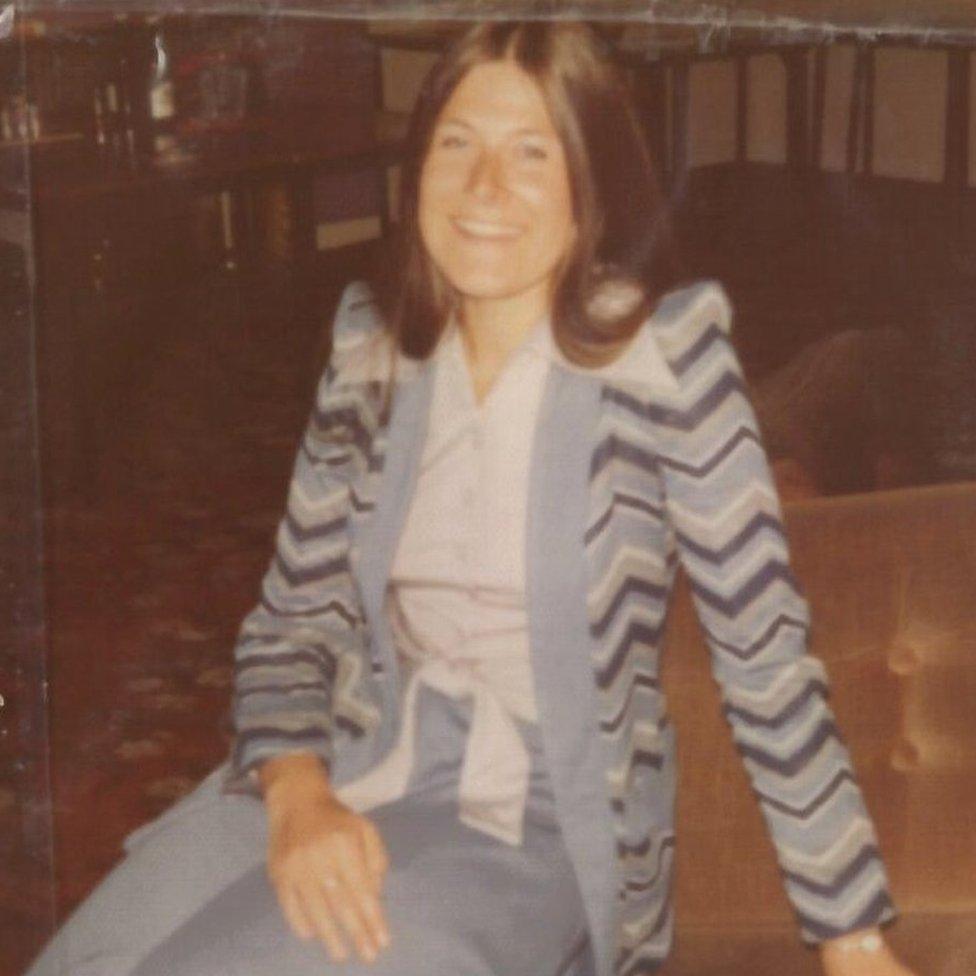
Brenda Page was found dead in 1978

The two young scientists had married in 1972, but separated four years later and were divorced in 1977.
Dr Page had complained of being unhappy in the marriage and said she was scared of her husband.
She was born in Ipswich and studied zoology at University College London, where a first-class honours bachelor of science degree was followed by a PhD in genetics from the University of Glasgow.
It was during her time studying genetics in Glasgow that she met her future husband in 1971.
Harrisson was born in Ripon in North Yorkshire and studied at Queens' College Cambridge, before later becoming a tutor in biology at Harvard University in the United States.
Also known as Kit, he moved back to the UK and worked as a researcher at a Glasgow virus research centre.
The pair started a relationship and, within a year, they were married in Ipswich on 6 May 1972.
The following year Dr Page was appointed as principal of the genetics department at the University of Aberdeen Medical School.
Her husband continued his studies in Edinburgh, before also moving to Aberdeen.
However, Dr Page expressed concerns to those close to her about her husband's behaviour, saying he could be violent and that the marriage was unhappy.
Christopher Harrisson, now 82, had denied murdering his former wife
They separated in 1976, and Dr Page got a flat of her own.
However, her older sister Rita Ling, 88, said Dr Page thought her husband was stalking her.
Mrs Ling said her sister described her relationship as having been "like walking on eggshells" and said Harrisson was "unpredictable" and "could be very nice or very nasty".
Dr Page started a second job as an escort after answering a newspaper advert in 1976, meeting oil industry workers to earn extra cash.
Mrs Ling said she thought her sister had been "quite hard up" but was earning "good money".
She said Dr Page loved going out to nice restaurants and meeting people, and that when she voiced concerns her sister had told her she was being old-fashioned.
'Put two and two together'
A divorce was granted in October 1977 and Dr Page also took out an interdict to keep Harrisson away from her.
She left what turned out to be a will with her sister, with the message: "To be opened only after my death".
Mrs Ling said: "I didn't open it until after she died.
"I didn't think it was relevant to her marriage at the time. I was only afterwards I put two and two together."
She saw her younger sister the weekend before she died.
"She had been to a conference that was very successful, and she was in a really good mood," Mrs Ling said.
"But she did not want to go home to Aberdeen. Because she was afraid her ex-husband would still be pestering her."
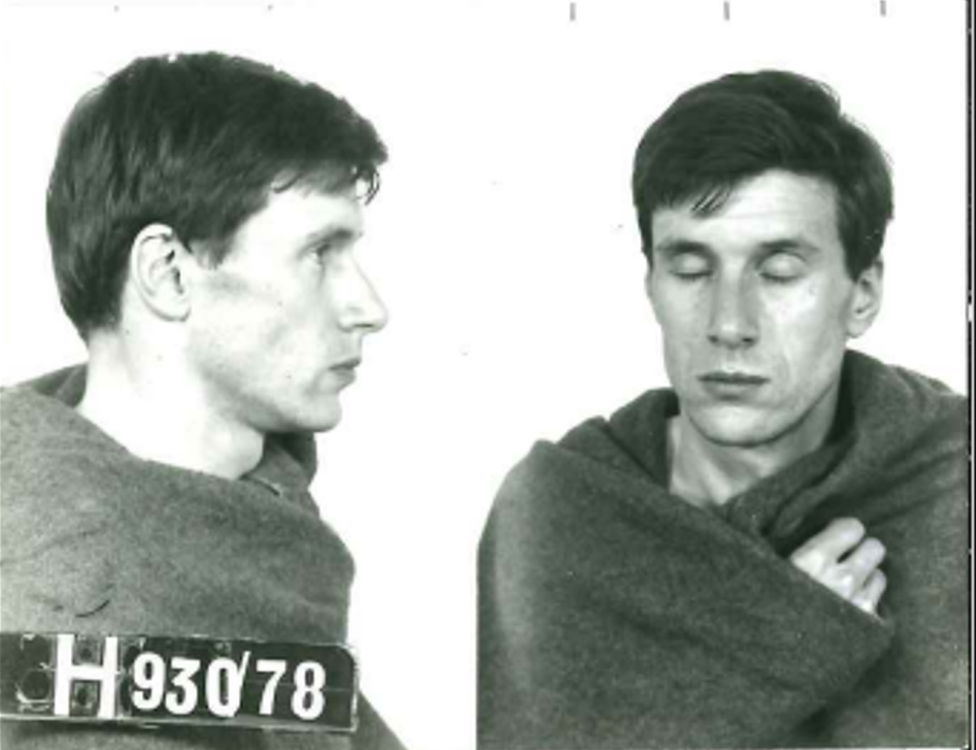
Police mugshot of Christopher Harrisson from 1978
Elsa Christie, an acquaintance of Harrisson, said he had phoned her shortly before Dr Page's death.
"He said he was going to kill her," she said.
On 14 July 1978, Dr Page's body was found in her home in Allan Street. She had suffered more than 20 head and face injuries.
It was believed her killer had forced open a rear window, and may have lain in wait for her return.
Dr James Douglas, who had met Dr Page in 1977 during research work, was one of her neighbours at the time.
"I was asked by the police to go and identify her body," he said.
"I was absolutely horrified. It's stayed with me for 45 years."
He described Dr Page as kind and thoughtful, adding: "She was very intelligent. Scientifically she was incredibly precise, she was very knowledgeable."
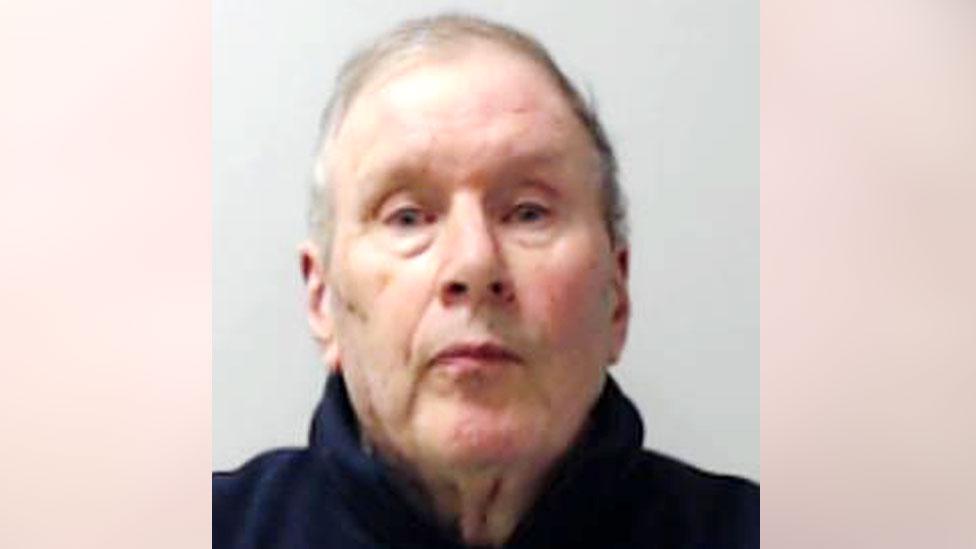
Christopher Harrisson, now 82, had denied murdering his former wife
Harrisson was a suspect at the time but was not prosecuted.
The murder dominated news headlines, as police continued to seek key witnesses or a vital piece of evidence.
But there was no breakthrough, and as time passed Dr Page's death became a cold case.
Then, 37 years after the killing, former Lord Advocate Frank Mulholland instructed Police Scotland to re-investigate in February 2015.
'Horrendous ordeal'
Semen found on a duvet in Dr Page's Allan Street flat matched her former husband's DNA profile and was said by forensic expert to be 590 million times more likely to be from him than another male.
Harrisson was taken in for questioning on 27 March 2020, where he maintained he had nothing to do with his ex-wife's death.
He also told police: "I do not think anyone could have been brighter than Brenda.
"She had a brilliant career ahead of her. She was a brilliant scientist."
More than four decades later after her death, he was charged with Dr Page's murder. Thousands of people had been spoken to in connection with her death.
After a 10-day trial, the jury of eight men and seven women took two and a half hours to reach their verdict.
Her nephew Chris Ling said afterwards outside court that the family was "absolutely delighted" to see justice finally done.
"Not a day goes by when we don't think about Brenda and the horrendous ordeal she must have suffered that night," he said.
"Brenda was an extremely kind, intelligent woman with her whole life ahead of her."
Related topics
- Published3 March 2023
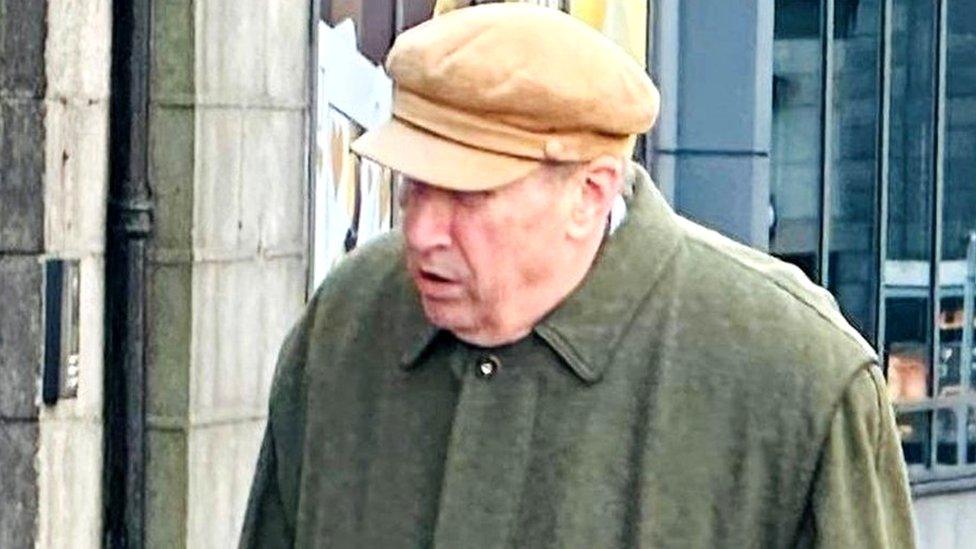
- Published27 February 2015
